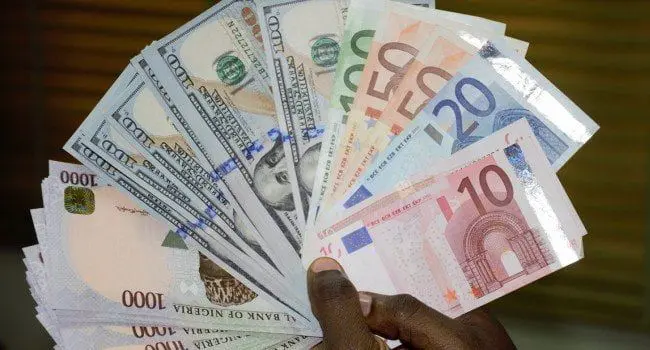
Aboki Naira to Dollar Black Market Exchange Rate Today, 27th August 2025
The black market exchange rate for the US Dollar (USD) to Nigerian Naira (NGN), commonly referred to as the “Aboki” rate, has shown slight fluctuations in Nigeria’s parallel forex market.
According to sources at Bureau De Change (BDC) operators in Lagos, Abuja, Port Harcourt, and Kano, the exchange rate for a dollar to naira on August 27, 2025, stands at approximately ₦1,550 for selling and ₦1,538 for buying.
Trending Now!!:
This marks a marginal shift from the previous day’s rates, where players in the Lagos Parallel Market reported buying at ₦1,538 and selling at ₦1,528. The slight uptick reflects ongoing volatility in the black market, driven by high demand for dollars due to importation, international travel, and other commercial activities.
The Central Bank of Nigeria (CBN) continues to distance itself from the parallel market, directing individuals to engage in foreign exchange transactions through authorized banks, where the official rate is approximately ₦1,500 per USD.
Forex traders in Lagos’ bustling Computer Village noted a steady demand for dollars, particularly from small-scale businesses and individuals relying on remittances. “The market is tight, but rates are holding for now. We expect more movement if oil prices or reserves shift,” said a local trader who preferred anonymity.
The black market remains a critical avenue for many Nigerians due to the limited availability of foreign currency through official channels. However, experts caution that the premium on black market rates, coupled with their unregulated nature, can lead to significant price variations across different regions and traders.
For instance, rates in Abuja and Kano may differ slightly from those in Lagos due to local demand and supply dynamics.
Nigerians are encouraged to compare rates from trusted sources before engaging in transactions to secure the best possible deal.
As the naira continues to navigate economic pressures, including fluctuating oil prices and foreign reserve levels, the black market exchange rate remains a key indicator of Nigeria’s broader financial landscape.
Stay tuned for further updates as the situation evolves.


